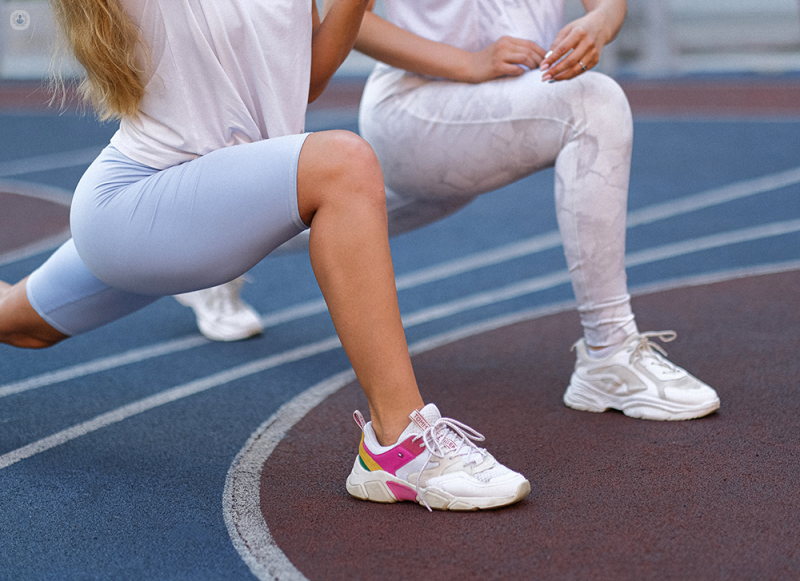Common causes of knee pain in young adults and how to treat it
Autore:Sore, aching or swollen knees isn’t a problem only older people experience, plenty of young people complain about painful knees too! However, treatment for knee pain in young adults is often slightly different and there are both surgical and non-surgical procedures that can help.
Mr Ayaz Lakdawala, a highly-skilled consultant orthopaedic surgeon based in Coventry, explains the most common causes of knee pain in young adults and how it can be treated.

Why might some young adults have 'bad', painful knees?
Having pain in your knee can be caused by any type of knee injury, mechanical problem or form of arthritis. The most common cause of painful knees in young people include:
- Meniscal tear
- Ligament injury
- Cartilage damage
- Knee instability
- Tendonitis/tendinopathy
- Maltracking/mal-alignment of the patella
- Mal-alignment of the legs e.g. bow legged or knock knees
- Muscular imbalance
- De-conditioning
There are over 100 forms of arthritis, but the ones most likely to affect young people’s knees are rheumatoid arthritis, psoriatic arthritis, gout and pseudogout.
What are the most common knee injuries in young adults?
Most causes of knee pain in young adults come from overuse injuries when ligaments or tendons are overworked. These symptoms can develop quickly after strenuous activity and usually affect sports players. Tendonitis or bursitis are a couple of common overuse injuries.
The most common knee injuries are:
- Meniscal tear
- ACL rupture
- Ligament sprain or tear
- Cartilage lesions
- Patella dislocation
- Tendonitis/tendinopathy
How often do young adults need surgery for bad knees?
Surgery is considered when non-operative treatments have not worked. Most young patients who have pain and associated symptoms like locking, knee giving way and frequent swelling usually require surgery if these symptoms affect their ability to work, play sports or carry-out recreation activities.
Certain conditions like tendonitis, muscular imbalance, muscle de-conditioning can be treated by physiotherapy and muscle conditioning. Conditions such as proximal patella tendonitis can also be treated with PRP (platelet-rich plasma injections).
What non-surgical procedures are good for knee pain in young adults?
The type of non-surgical procedure will depend on your underlying condition or injury. In the acute phase or immediately after injury, wearing a knee splint or brace for a short amount of time can be helpful.
Physiotherapy can be useful in the rehabilitation phase, and injections such as PRP or steroid injections can also be helpful in certain conditions. These non-surgical treatments can often help you to return quickly to sports and daily activities.
Should young adults with knee pain avoid specific activities and sports?
The type of activities to avoid depend very much on what the underlying cause is. I would advise young patients with pain to see an orthopaedic specialist who will be able to assess their knee, make the diagnosis and advise them accordingly.
During the acute phase, I usually recommend avoiding impact activities like running, jogging, jumping and pivoting, which means most sports. I also advise my patients not to kneel or squat when the knee is acutely painful.
The advice regarding avoiding any specific activity or sports will then depend on whether the underlying condition has been appropriately treated. I would strongly advise young adults to consult a knee specialist if the pain or associated symptoms persist.
If you have persistent knee pain and would like to see a specialist, head to Mr Ayaz Lakdawala’s Top Doctors profile and make an appointment with him.


